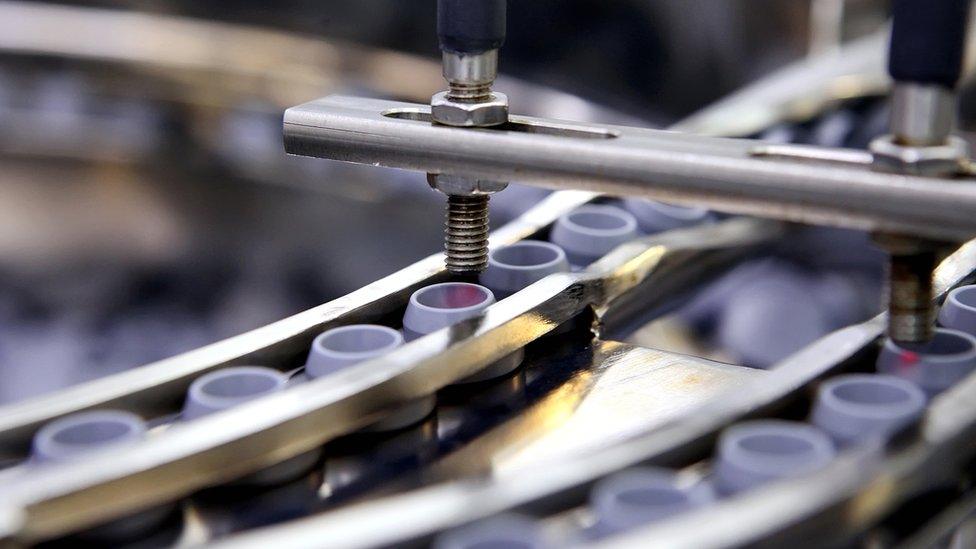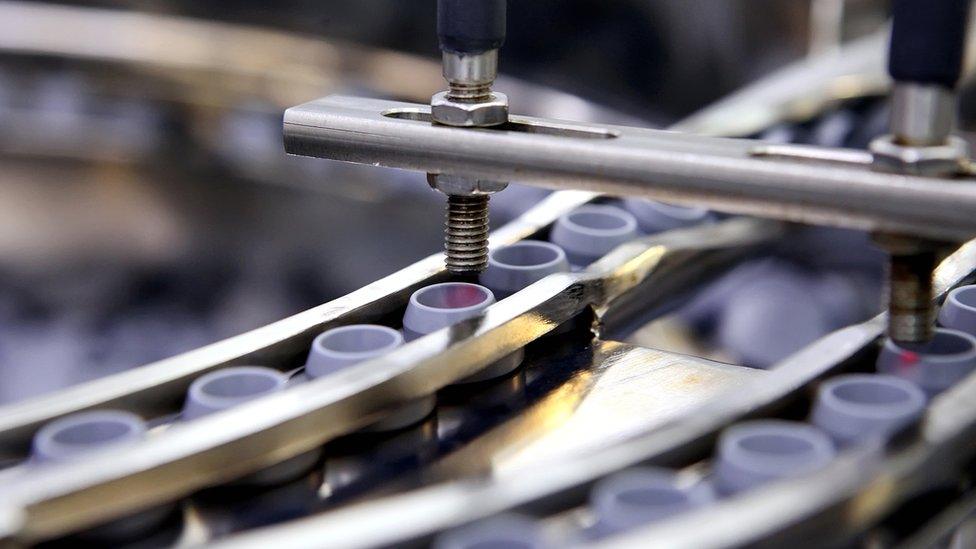Fall in output and orders for Scotland's private sector
- Published

Bank of Scotland recorded a fall in output and new orders in manufacturing
Private sector firms continued to report declining output last month, though export orders and higher prices helped manufacturers.
The monthly Purchasing Managers Index (PMI) found recruitment was rising, even in the services sector, which saw accelerating decline in output.
It showed no improvement on the initial negative reaction to the Brexit vote.
The PMI figures are compiled by Markit data agency and published by Bank of Scotland.
Over the past six months, the composite index for Scotland was rising only in June, whereas the UK figure signalled contraction only in July, before a bounce back.
A figure below 50 signals contraction and above 50, it suggests growth.
The Scottish output figure fell from 49.2 in July to 49.1 in August, which is the lowest since March.
While there was a slight rise in production among manufacturers, it was service providers that reported the downturn in oil and gas was pulling down their workload.
That includes business services from accountancy to data analysis and commercial property.

The demand for the goods and services of Scotland's private-sector firms has continued to fall
New orders were down in both sectors, and more so in the dominant service sector.
Despite weak figures for the service sector, managers in the survey - covering 600 companies - said they were continuing to recruit, reaching a 15-month high for services, and a 21-month high for manufacturing.
Prices were rising, partly through the weakening of sterling since the June referendum.
Companies were more willing than they have been in recent times to pass on the higher prices to customers, as an early indicator that overall inflation may be about to rise.

Analysis - Douglas Fraser, Scotland Business/Economy Editor
The fall-out from the Brexit vote continues, but it's less and less clear cut what it means for the economy.
The Purchasing Managers Index for the UK as a whole signalled a sharp shock in the private sector outlook in July. But it bounced back quite vigorously with the August survey.
Scotland didn't see nearly as sharp a shock, but nor has it seen a bounce back. It continues to reflect an economy that has been in a moderately sorry state of stagnation for around a year.
When there have been improvements, they've been very weak, but the declines have been modest too.
The increase in recruitment by private firms should provide some reassurance. We'll see if that's supported by the Labour Force Survey figures later this week.
And while companies will be pleased to be able to pass on higher costs, rather than squeezing their margins, that's a sign to the rest of to expect a pick-up in inflation.
Following the weakening of sterling, that is no surprise. And so long as the inflation is modest, around the Bank of England 2% target, it's a lot healthier than facing the risk of deflation.

The figures on UK inflation are published on Tuesday, and the monthly publication of returns to the Labour Force Survey are out on Wednesday.
Nick Laird, a senior commercial lending manager with Bank of Scotland, said, "Scotland's economic performance continued to face headwinds during August, as the private sector remained in contraction. Both output and new business fell for the second month in a row, while Scottish firms faced further cost pressures.
"It was good news for jobs and selling though with the rates of increase in workforce numbers and output prices both up to 17-month and 25-month highs respectively."
- Published14 March 2016

- Published11 January 2016

- Published13 June 2016
